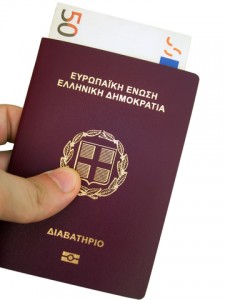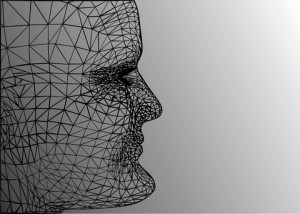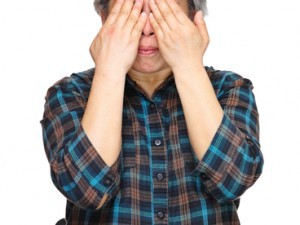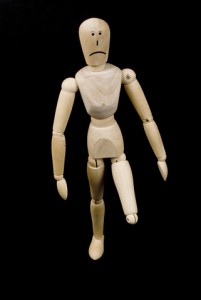A phobia for needles is called trypanophobia and is something many people suffer from. It can cause anxiety, depression and fear. Thankfully, there are ways and means of treating a phobia for needles which not only help you control this fear but can remove it forever. We will now look at the symptoms and what brings on a phobia for needles.
People scared of needles
It is widespread and reasonable to be scared of needles, but there is a significant difference between this type of fear and a phobia of needles. Some of the more common symptoms of trypanophobia include:-
• Fear/anxiety
• Panic attacks
• Palpitations
• Insomnia in days before the injection
• In extreme cases, fainting
While all of the symptoms are common with various phobias, if you think of needles or see a needle and experience any of the above, it could be a genuine phobia.
Does a blood test hurt?
Many people associate a phobia for needles with a phobia of blood tests. However, not all needles are used to take blood; for example, the Covid vaccine, so it can be a little misleading to directly associate a phobia for needles with blood tests.
Whether you are waiting for a vaccine or a blood test, if you have a genuine fear, your mind can play tricks on you. Akin to visiting the dentist, we have all had that deep-seated fear when the reality is nowhere near. For many people, this is the same when they fear of needles; the actual act of using the needle is nowhere near as painful as we often think in our minds.
How can I overcome the blood test needle?
While it may not help you on the day, the best way to think of a blood test needle is a potential cure for your health problems. Of course, those few uncomfortable moments when the blood test needle goes in are unpleasant. They can hurt a little, but compared to a potentially life-saving diagnosis, surely it is best to put everything into perspective?
If you were to skip a blood test because of a fear of needles, this could have a far-ranging impact on your short, medium and long-term health. For example, while the Covid vaccination has been controversial, it has saved many lives. Even if your fear for needles stopped you from taking the vaccination for yourself, maybe it is time to look at your family and how this may affect them. Covid is just one example, but very often, health issues involving a blood test could have a mental or actual physical impact on your family.
Is an injection needle uncomfortable or painful?
The actual injection needle today is very different to those of years gone by, they are much thinner and sharper, and the whole process lasts just a matter of seconds. Whether you think good thoughts, look elsewhere for a moment or simply close your eyes, taking the focus away from the injection needle will undoubtedly help. The nurse administrating the injection needle will explain the process, tell you what is happening along the way and make it as painless as possible. It is easy to forget that these people are trained to use an injection needle, especially those who fear such instruments.
Fear of blood
Unfortunately, many people mix up their fear for needles with a fear of blood. The fear of blood is a whole different subject, a phobia known as hemophobia. While the symptoms may be similar, the treatment for fear of needles may differ significantly from the treatment for fear of blood. Many people will feel wheezy and sometimes pass out at the sight of blood. This is a lot more common than you might assume!
How to get over a fear of needles
Thankfully, when looking at fear for needles, you can take several actions to reduce the anxiety. This is very different from the treatment of qualified phobia therapists, who will seek to remove that fear instead of learning how to cope. Some of the best ways to reduce your trypanophobia include:-
Bring support with you
Regarding needles and vaccinations/blood tests involving children, we automatically go with them for support. Therefore, if you fear needles, it makes sense to bring some support. This may be a partner, family member or friend, someone there to be a calming influence and to help you.
Use the distraction technique
If you have taken a child for an injection of any kind, you will notice that doctors and nurses use an array of distraction techniques. This focuses the child’s mind on something different, and it has happened by the time they have realised they are waiting for an injection. This technique works just as well with adults!
Let the doctor/nurse know your fear of needles
Unless you tell the doctor/nurse that you have a fear for needles, how will they know? You must let them know so they can explain the process in more detail, putting your mind at rest. As we touched on above, when going to the dentist, the thought is often worse than the reality. It is no different for those with a fear of needles.
Ask for a freezing spray
Nowadays, you can get a simple and fast-acting freezing spray which numbs the area where the needle will be inserted. The idea is that you will not feel the needle going in, which will help to reduce your symptoms and fears. If you don’t ask, you won’t get it!
Don’t watch the needle going in
Unfortunately, for some unknown reason, many people with fear for needles will often make a point of watching the needle going in. This is akin to punishing yourself for a fear you already know exists. Human nature or the mind playing tricks, try to ignore these thoughts, look away when the needle is about to go in!
Relaxation techniques
While many dismiss such simple activities, learning relaxation techniques can significantly impact your fear of needles. The problem for many is that moment when the fear goes out of control. Your heart is racing, your head is pounding, your heart races more, and the vicious circle starts. If you can break this process, reduce your heart rate and take back control, you are well on the road to beating your phobia!
If you feel faint, lie down
If you feel faint on the day, ask the doctor/nurse if you can lie down to receive the injection. Also, if you have felt faint at the sight of needles in the past, it may well be an idea to lie down before the next injection. While you may think that some people are “watching you”, in reality, they are too busy getting their own injections.
Summary
The fear for needles, known as trypanophobia, is widespread but often misunderstood. As we touched on above, you can take many simple actions to reduce your anxiety and take back control of your heart rate and that fear of panic. While there is no doubt a fear of needles is a genuine phobia, there is also no doubt you can control it and eventually beat it.






